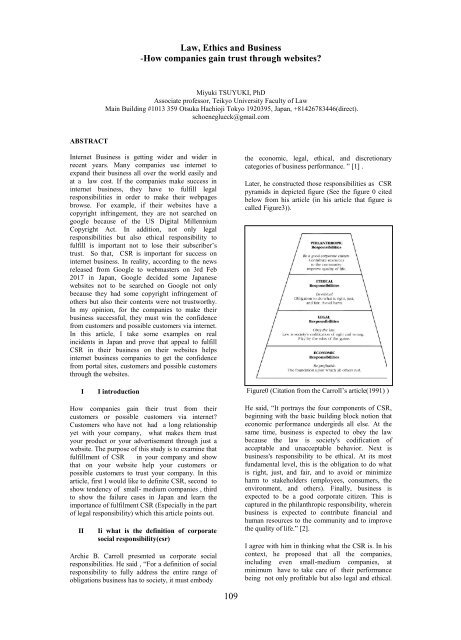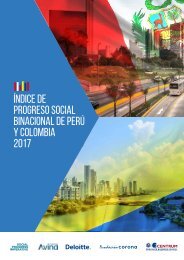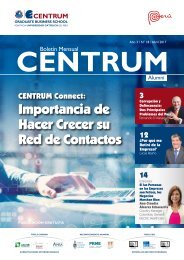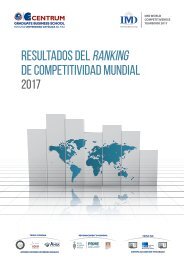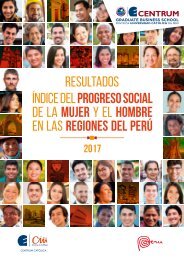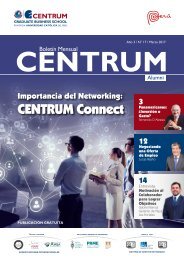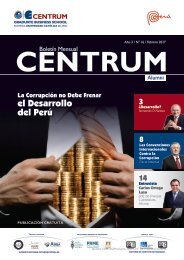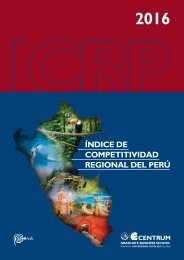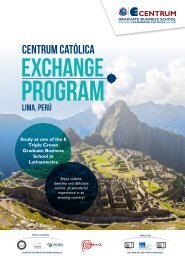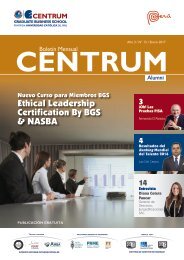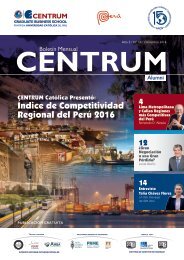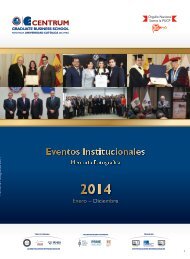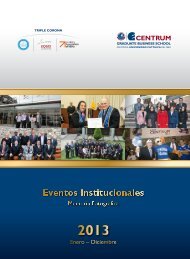Pan-Pacific Conference XXXIV. Designing New Business Models in Developing Economies
This publication represents the Proceedings of the 34th Annual Pan-Pacific Conference being held in Lima, Peru May 29-31, 2017. The Pan-Pacific Conference has served as an important forum for the exchange of ideas and information for promoting understanding and cooperation among the peoples of the world since 1984. Last year, we had a memorable conference in Miri, Malaysia, in cooperation with Curtin University Sarawak, under the theme of “Building a Smart Society through Innovation and Co-creation.” Professor Pauline Ho served as Chair of the Local Organizing Committee, with strong leadership support of Pro Vice-Chancellor Professor Jim Mienczakowski and Dean Jonathan Winterton.
This publication represents the Proceedings of the 34th Annual Pan-Pacific Conference being held in Lima, Peru May 29-31, 2017. The Pan-Pacific Conference has served as an important forum for the exchange of ideas and information for promoting understanding and cooperation among the peoples of the world since 1984. Last year, we had a memorable conference in Miri, Malaysia, in cooperation with Curtin University Sarawak, under the theme of “Building a Smart Society through Innovation and Co-creation.” Professor Pauline Ho served as Chair of the Local Organizing Committee, with strong leadership support of Pro Vice-Chancellor Professor Jim Mienczakowski and Dean Jonathan Winterton.
You also want an ePaper? Increase the reach of your titles
YUMPU automatically turns print PDFs into web optimized ePapers that Google loves.
Law, Ethics and <strong>Bus<strong>in</strong>ess</strong><br />
-How companies ga<strong>in</strong> trust through websites?<br />
Miyuki TSUYUKI, PhD<br />
Associate professor, Teikyo University Faculty of Law<br />
Ma<strong>in</strong> Build<strong>in</strong>g #1013 359 Otsuka Hachioji Tokyo 1920395, Japan, +81426783446(direct).<br />
schoeneglueck@gmail.com<br />
ABSTRACT<br />
Internet <strong>Bus<strong>in</strong>ess</strong> is gett<strong>in</strong>g wider and wider <strong>in</strong><br />
recent years. Many companies use <strong>in</strong>ternet to<br />
expand their bus<strong>in</strong>ess all over the world easily and<br />
at a law cost. If the companies make success <strong>in</strong><br />
<strong>in</strong>ternet bus<strong>in</strong>ess, they have to fulfill legal<br />
responsibilities <strong>in</strong> order to make their webpages<br />
browse. For example, if their websites have a<br />
copyright <strong>in</strong>fr<strong>in</strong>gement, they are not searched on<br />
google because of the US Digital Millennium<br />
Copyright Act. In addition, not only legal<br />
responsibilities but also ethical responsibility to<br />
fulfill is important not to lose their subscriber’s<br />
trust. So that, CSR is important for success on<br />
<strong>in</strong>ternet bus<strong>in</strong>ess. In reality, accord<strong>in</strong>g to the news<br />
released from Google to webmasters on 3rd Feb<br />
2017 <strong>in</strong> Japan, Google decided some Japanese<br />
websites not to be searched on Google not only<br />
because they had some copyright <strong>in</strong>fr<strong>in</strong>gement of<br />
others but also their contents were not trustworthy.<br />
In my op<strong>in</strong>ion, for the companies to make their<br />
bus<strong>in</strong>ess successful, they must w<strong>in</strong> the confidence<br />
from customers and possible customers via <strong>in</strong>ternet.<br />
In this article, I take some examples on real<br />
<strong>in</strong>cidents <strong>in</strong> Japan and prove that appeal to fulfill<br />
CSR <strong>in</strong> their bus<strong>in</strong>ess on their websites helps<br />
<strong>in</strong>ternet bus<strong>in</strong>ess companies to get the confidence<br />
from portal sites, customers and possible customers<br />
through the websites.<br />
the economic, legal, ethical, and discretionary<br />
categories of bus<strong>in</strong>ess performance. ” [1] .<br />
Later, he constructed those responsibilities as CSR<br />
pyramids <strong>in</strong> depicted figure (See the figure 0 cited<br />
below from his article (<strong>in</strong> his article that figure is<br />
called Figure3)).<br />
I<br />
I <strong>in</strong>troduction<br />
Figure0 (Citation from the Carroll’s article(1991) )<br />
How companies ga<strong>in</strong> their trust from their<br />
customers or possible customers via <strong>in</strong>ternet?<br />
Customers who have not had a long relationship<br />
yet with your company, what makes them trust<br />
your product or your advertisement through just a<br />
website. The purpose of this study is to exam<strong>in</strong>e that<br />
fulfillment of CSR <strong>in</strong> your company and show<br />
that on your website help your customers or<br />
possible customers to trust your company. In this<br />
article, first I would like to def<strong>in</strong>ite CSR, second to<br />
show tendency of small- medium companies , third<br />
to show the failure cases <strong>in</strong> Japan and learn the<br />
importance of fulfilment CSR (Especially <strong>in</strong> the part<br />
of legal responsibility) which this article po<strong>in</strong>ts out.<br />
II<br />
Ii what is the def<strong>in</strong>ition of corporate<br />
social responsibility(csr)<br />
Archie B. Carroll presented us corporate social<br />
responsibilities. He said , “For a def<strong>in</strong>ition of social<br />
responsibility to fully address the entire range of<br />
obligations bus<strong>in</strong>ess has to society, it must embody<br />
109<br />
He said, “It portrays the four components of CSR,<br />
beg<strong>in</strong>n<strong>in</strong>g with the basic build<strong>in</strong>g block notion that<br />
economic performance undergirds all else. At the<br />
same time, bus<strong>in</strong>ess is expected to obey the law<br />
because the law is society's codification of<br />
acceptable and unacceptable behavior. Next is<br />
bus<strong>in</strong>ess's responsibility to be ethical. At its most<br />
fundamental level, this is the obligation to do what<br />
is right, just, and fair, and to avoid or m<strong>in</strong>imize<br />
harm to stakeholders (employees, consumers, the<br />
environment, and others). F<strong>in</strong>ally, bus<strong>in</strong>ess is<br />
expected to be a good corporate citizen. This is<br />
captured <strong>in</strong> the philanthropic responsibility, where<strong>in</strong><br />
bus<strong>in</strong>ess is expected to contribute f<strong>in</strong>ancial and<br />
human resources to the community and to improve<br />
the quality of life.” [2].<br />
I agree with him <strong>in</strong> th<strong>in</strong>k<strong>in</strong>g what the CSR is. In his<br />
context, he proposed that all the companies,<br />
<strong>in</strong>clud<strong>in</strong>g even small-medium companies, at<br />
m<strong>in</strong>imum have to take care of their performance<br />
be<strong>in</strong>g not only profitable but also legal and ethical.


